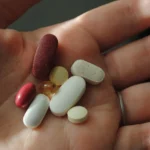The science of addiction is evolving, and emerging research is pointing out that your gut plays an important role in addiction recovery. The gut-brain axis, your body’s internal communication linking the digestive system and the brain, is more than just a biological connection. It plays a powerful role in shaping your mood, mental well-being, and even the cravings you feel for certain substances. When your gut is out of balance, your brain feels it too. For those in recovery, healing the gut is the key to lasting sobriety.
In this article, we’ll see how gut health is important in addiction healing, the role of probiotics, and practical strategies to restore your microbiome for better recovery outcomes.
The Gut-Brain Axis: Why Your Gut Controls Cravings
The gut-brain axis is a bidirectional communication network involving the central nervous system, the enteric nervous system, immune signaling, and the vagus nerve. When your gut is imbalanced, a condition called dysbiosis disrupts neurotransmitter production and fuels inflammation, both of which can intensify addiction-related behaviors.
1. Dysbiosis
People with substance use disorders often show reduced microbial diversity. Research consistently shows significantly lower α-diversity in alcohol-dependent individuals, with decreased beneficial bacteria like Bifidobacterium and increased potentially harmful Proteobacteria. This imbalance affects serotonin and dopamine levels, contributing to anxiety, depression, and cravings.
2. Chronic Inflammation
Substances like alcohol and opioids damage the gut lining, triggering the release of pro-inflammatory cytokines. These molecules interfere with the brain’s reward system, thereby increasing the likelihood of relapse.
3. Increased Intestinal Permeability
Increased intestinal permeability happens when the lining of your gut gets weakened. This allows unwanted toxins and particles to slip into your bloodstream, something your body was never designed to handle. These toxins trigger systemic inflammation and have been linked to heightened withdrawal symptoms and relapse risk.
Top 3 Probiotic Strains for Recovery
Scientific research has identified three probiotic strains that show promising results in supporting addiction recovery.
Lactobacillus rhamnosus has been shown in animal studies to reduce alcohol consumption by modulating GABA receptors, which play a key role in calming the nervous system. While promising, human clinical data specifically for addiction recovery remains limited.
Bifidobacterium bifidum is particularly effective in restoring gut flora after detoxification. This strain plays a crucial role in maintaining gut barrier function, helping to re-establish microbial balance and support mood stability.
Lactobacillus plantarum 8PA3 has demonstrated the ability to improve liver function in a small pilot study, a critical aspect of recovery, especially for those healing from alcohol-related damage. In this trial, ALT enzyme levels—a marker of liver health—were significantly reduced in individuals taking this strain combined with B. bifidum.
Together, these targeted probiotics do more than improve digestion; they may contribute to reducing cravings, lowering inflammation, and enhancing emotional resilience, making them a valuable addition to any holistic recovery plan.
Step-by-Step: Healing Your Gut in Early Recovery
Improving gut health isn’t a one-time fix; it requires a consistent, holistic approach. Here’s how you can start nurturing your gut microbiome during your early steps of recovery:
1. Dietary Interventions
Fermented Foods: Incorporate kefir, kimchi, sauerkraut, and yogurt to naturally boost Lactobacillus levels. Prebiotic Fibers: Foods like garlic, onions, bananas, and asparagus feed beneficial bacteria. Avoid Triggers: Eliminate processed sugars and alcohol, both of which promote dysbiosis.
2. Supplements
Probiotic Blends: Opt for formulas with targeted strains like L. rhamnosus GG (10–20 billion CFU). Omega-3 Fatty Acids: These reduce gut inflammation and support dopamine production.
3. Stress Management
Mindfulness and Yoga: These practices reduce cortisol levels, which improves gut motility and microbial diversity. Sleep Hygiene: Aim for 7–9 hours of quality sleep to regulate hunger hormones and prevent stress-induced eating.
The Science Behind Gut-Focused Addiction Treatments
Gut health interventions have moved far beyond simple wellness trends—they’re now grounded in compelling, cutting-edge scientific research that’s reshaping how we understand addiction recovery.
Microbiome Testing
Advanced stool analysis can reveal specific patterns of gut dysbiosis that are commonly seen in addiction, such as reduced Bifidobacterium levels and other beneficial bacteria imbalances. These detailed microbial profiles allow healthcare providers to design targeted probiotic treatment protocols, though clinical protocols are still being developed.
Pharmacobiomics
This fascinating emerging field explores the intricate relationship between our gut microbes and how our bodies process addiction medications like naltrexone and buprenorphine. Researchers are discovering that certain bacterial strains may influence drug metabolism, opening doors to personalized medicine approaches that could improve treatment outcomes for individuals struggling with addiction.
Fecal Microbiota Transplants (FMT)
Preliminary clinical trials are yielding promising results. One small study showed that FMT procedures resulted in 90% vs. 30% craving reduction (FMT vs. placebo) in alcohol use disorder patients at day 15. This treatment works by restoring healthy microbial balance to the gut, though this approach requires much more research before clinical application, particularly for opioid recovery.
Conclusion
Addiction recovery is as much about rebuilding your inner ecosystem as it is about behavioral change. By nurturing your gut microbiome, you’re not just improving digestion—you’re reinforcing your mental resilience, emotional regulation, and relapse prevention.
As the science evolves, one truth becomes clear: healing the gut is essential to healing the whole person. And that makes your microbiome one of the most powerful tools in your recovery toolkit.
FAQs
1. Can probiotics replace medication for addiction recovery?
No, probiotics cannot replace medication for addiction recovery. They serve as a supportive therapy that can enhance the effectiveness of traditional treatments, but should always be used alongside established medical interventions.
2. How long does it take to heal your gut?
With consistent dietary changes, supplementation, and lifestyle modifications, improvements in gut health typically become noticeable within 3–6 months. Individual results may vary based on the severity of initial gut dysfunction and adherence to the treatment plan.
3. Are there risks with probiotics?
For most people, probiotics are a safe and gentle way to support gut health when used the right way. However, individuals with compromised immune systems, severe underlying health conditions, or those taking certain medications should consult with a healthcare provider before starting probiotic supplementation.
Additional Contributor
Charley Allen, a licensed Marriage and Family Therapist with a Master’s in Clinical Psychology from Antioch University, Los Angeles, specializes in mindfulness-based therapy. With extensive experience in psychotherapy and a background in the U.S. Army, he integrates mindfulness to support resilience, self-worth, and healing.


















